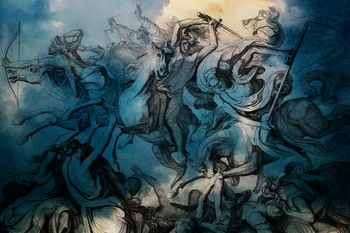In this episode of the podcast, Sam Harris speaks with Toby Ord about preserving the long term future of humanity. They discuss moral biases with respect to distance in space and time, the psychology of effective altruism, feeling good vs. doing good, possible blindspots in consequentialism, natural vs. human-caused risk, asteroid impacts, nuclear war, pandemics, the potentially cosmic significance of human survival, the difference between bad things and the absence of good things, population ethics, Derek Parfit, the asymmetry between happiness and suffering, climate change, and other topics.
Toby Ord is a philosopher at Oxford University, working on the big picture questions facing humanity. He is focused on the ethics of global poverty and is one of the co-founders of the Effective Altruism movement in which thousands of people are using reason and evidence to help the lives of others. Along with William MacAskill, Toby created the online society, Giving What We Can, for people to join this mission, and together its members have pledged over $1.5 billion to the most effective charities.
His current research is on the risks that threaten human extinction or the permanent collapse of civilization, otherwise known as existential risk. Toby has advised the World Health Organization, the World Bank, the World Economic Forum, the US National Intelligence Council, and the UK Prime Minister’s Office.
Toby’s new book The Precipice: Existential Risk and the Future of Humanity explores the cutting-edge science behind the risks we face. He puts risks in the context of the greater story of humanity, showing how ending these risks is among the most pressing moral issues of our time. Toby also points the way forward to the actions and strategies that can safeguard humanity.
Website: http://www.tobyord.com/
Twitter: @tobyordoxford

